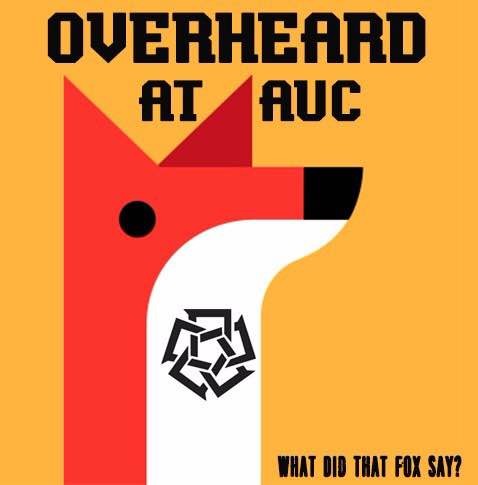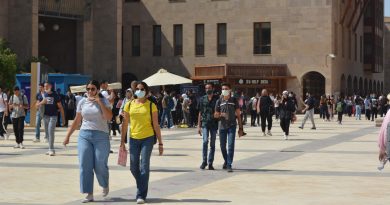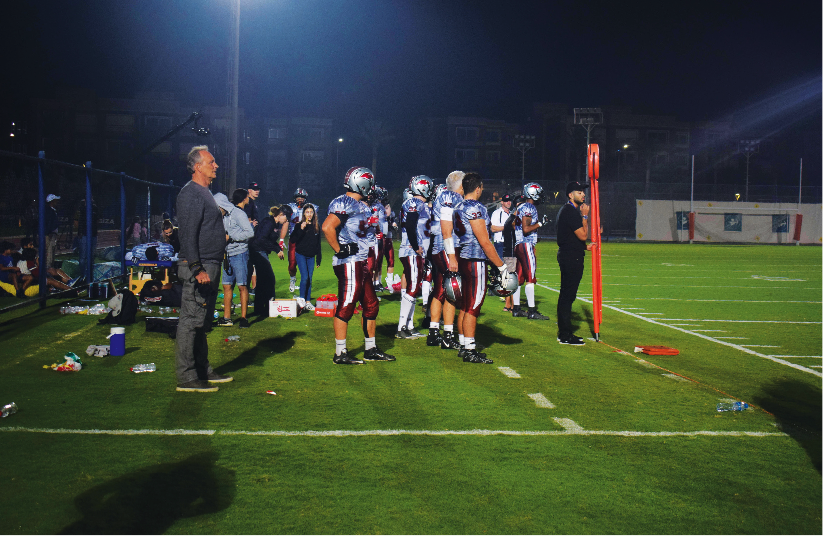Anonymous Voices: ‘Overheard at AUC’
BY FARIDA ISMAIL AND SARAH GUIRGUIS @faridaka95 and @SarahSamiGu

Shh!
The walls have ears, and what you say unbeknownst can end up on social media for the whole world to … enjoy.
Three AUCians started a new Facebook page called “Overheard at AUC” almost three weeks ago sharing what is collected from prying over often bizarre conversations their fellow students have among themselves.
The page is designed so anyone can publish random bits of conversations they overhear on campus – and do so anonymously. Even the page administrators don’t know who is posting.
“People are talking in private. You’re listening, then posting it online, it’s weird,” said freshman Nour Rostom.
“[Or] maybe they have loud voices, I have a loud voice,” she continued.
In one posting published last week, a student at the PVA said:
3ady ya3ny [It’s normal], I stole her boyfriend. Why is she so bitter about it?
In another post, a girl is overheard in the library telling Mahmoud that she will not date his brother and that he should stop nagging.
La2 ya Mahmoud mesh hasa7eb a5ok! Kfaya zan!!
“It’s anonymous, it’s fun. If you don’t state the people and you don’t make it obvious then it’s not a problem,” says Nariman Samy, an economics junior.
The page administrators are two females and a male, they asked to remain anonymous because they wanted to avoid people asking them unnecessary questions or requests concerning what they publish.
One of them is a senior double majoring in graphic design and film; the other is a sophomore double majoring in psychology and film, and the third is a junior majoring in accounting.
When it came to the issue of privacy concerns, the administrators said that most of their submissions are not very detailed and are only “snippets” of conversations.
“If you’re in a public space and your picture is for example taken, it’s considered public property, so there’s no copyright to what they’re saying because it’s in the general atmosphere,” they said.
The admins didn’t refuse to publish anything except in one case where it was discriminating against other students.
“It was [also] a very clear marker of identity,” they said.




